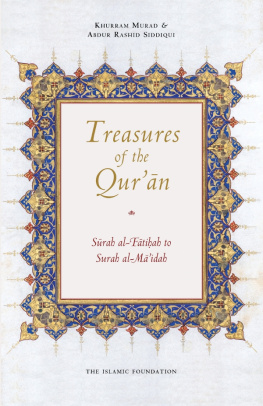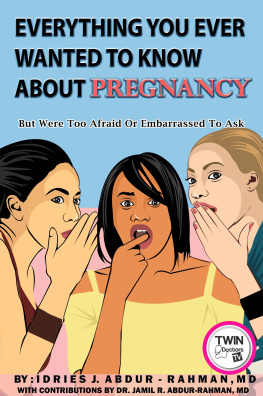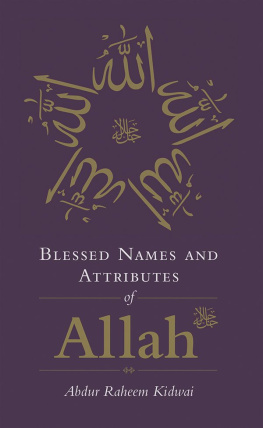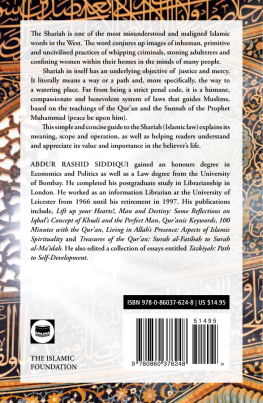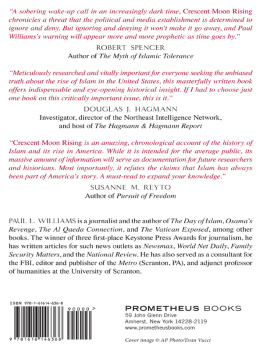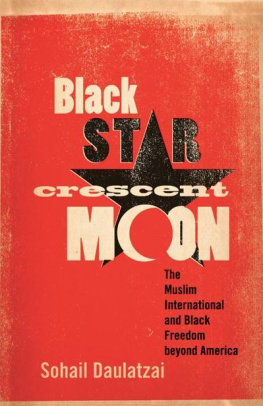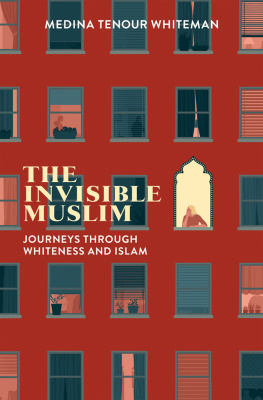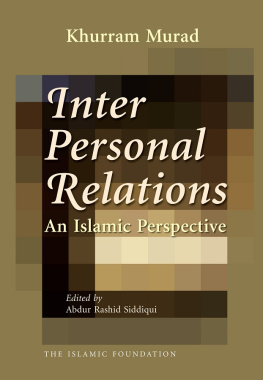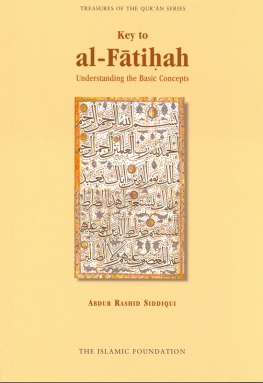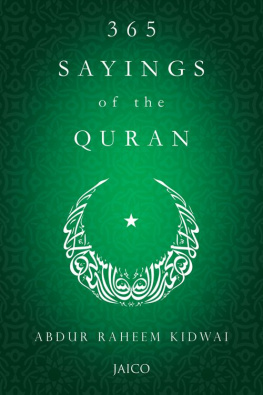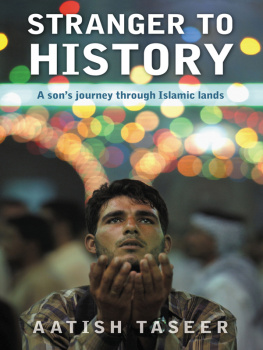HEIR TO THE CRESCENT MOON
Iowa Prize for Literary Nonfiction
HEIR TO THE CRESCENT MOON
Sufiya Abdur-Rahman
UNIVERSITY OF IOWA PRESS
IOWA CITY
University of Iowa Press, Iowa City 52242
Copyright 2021 by Sufiya Abdur-Rahman
www.uipress.uiowa.edu
Printed in the United States of America
Cover design by Black Kat Design, LLC; text design by April Leidig
No part of this book may be reproduced or used in any form or by any means without permission in writing from the publisher. All reasonable steps have been taken to contact copyright holders of material used in this book. The publisher would be pleased to make suitable arrangements with any whom it has not been possible to reach.
Printed on acid-free paper
Heir to the Crescent Moon is a work of nonfiction. Some names have been changed. A portion of this book has appeared in slightly different form in Ummah Wide.
Library of Congress Cataloging-in-Publication Data
Names: Abdur-Rahman, Sufiya, author.
Title: Heir to the Crescent Moon / Sufiya Abdur-Rahman.
Description: Iowa City: University of Iowa Press, [2021] | Includes bibliographical references. | Winner of the Iowa Prize for Literary Nonfiction. |
Identifiers: LCCN 2021008764 (print) | LCCN 2021008765 (ebook) | ISBN 9781609387839 (ebook) | ISBN 9781609387822 (paperback) | ISBN 9781609387822 (paperback) | ISBN 9781609387839 (ebook)
Subjects: LCSH: Abdur-Rahman, Sufiya. | Muslims, blackUnited StatesBiography. | Muslim womenUnited StatesBiography.
Classification: LCC BP62.B56 (ebook) | LCC BP62.B56 A234 2021 (print) | DDC 297.092 [B]dc23
LC record available at https://lccn.loc.gov/2021008764
To my siblings, Idris, Aqil, Aliya, Isa, and Moe, whose journeys inspired me to explore my own
I feel very strongly, though, that this amorphous people are in desperate search for something which will help them to re-establish their connection with themselves, and with one another. This can only begin to happen as the truth begins to be told.
JAMES BALDWIN
CONTENTS
HEIR TO THE CRESCENT MOON
PROLOGUE
My Father
BEFORE I EVEN UNDERSTOOD what a Muslim was, I knew I wanted to be one. Because my father was. Both of my parents were. This meant that I was too. But simply being born Muslim was not enough. When I was five years old, in 1984, my father taught me that being Muslim is some thing more.
He had a way of gliding into a room, walking on the balls of his feet like his heels were too good to touch ground. His steps were soundless that day except for the faint swishing of his ashen soles across our cheap linoleum. I watched him as he strode from the hallway into the dining room, fingering a string of beads in his right hand. I had seen them before, hanging from a nail in the wall of his office at the opposite end of the hallway most of the time and clenched in his hand at others.
The beads were simple: plain brown, perfectly round, smaller than marbles but bigger than sweet peas. They were strung together like a necklace, except where the clasp should have been, one or two or three extra beads jutted out and led to a stiff brown tassel hanging from the end.
The flattened tips of my fathers thumb and forefinger pinched each globe then inched along to the next, the string of beads rotating in his grasp like stairs on an escalator. He did this while walkinginto the kitchen and over to the living roomwith his fingers at my eye level, almost as if unaware of the movements they were making.
What is that, Abi? I asked my father, still eyeing the beads instead of looking at him. The little circles were plain but pretty and seemed like the kind of thing a girl like me should have. Dainty due to my size and fragile because of my timidity and penchant for bursting into tears if even looked at unkindly, I was often treated like a girly-girlnever mind that I hated dresses, dolls, the color pink, and any doubt that I could keep up with a boy my age. I thought if I asked nicely enough, my father might give the beads to me. He sat down in a chair faced backward from the dining room table and gathered me onto his lap. His caramel-complected face stared into mine, except his was framed by a low dark Afro behind his receding hairline and a full black beard shading his jaw and chin.
These are dhikr beads. Theyre for praying, he said, still not holding them out for me to touch.
But youre not praying, I said. Youre not even saying anything.
Im praying in my head, he explained. You dont always have to pray out loud, but Allah should always be on your mind and in your heart. My father used the hand not holding the dhikr beads to point at my head and chest.
I knew by then that Allah was God. My father most often referred to Him as the Creator. He created the sun, the moon, the stars, the land, and all the people on it. And for that, we worshipped Him.
My father uncurled his fingers to show me the beads laid lightly across his palm. It was here, in his hands, that Id get lost in the intrigue that was my father. Id grasp his fingers and stare at the back of his hand. It bulged with pulsating veins I pressed down on and watched jump from side to side to avoid my index fingers pressure. Id turn his hand over and study his palm, the intricate conglomeration of lines, fingerprints, and creases so deep and dark they were like crevasses, dangerous erosions formed over time, through stress, and to be avoided at all costsunless I could learn to read them, figure out what they meant. And so I held his hand at different angles, under varying lights, compared it to my grandfathers hand, and traced both of their creases with my tiny fingertips. Still, I couldnt decipher Abi. But I knew something was there.
With the dhikr beads obscuring his head line, life line, and fate line, my father explained there were two sets of thirty-three beads on the string and one of thirty-four, a set for each Arabic saying he would silently utter in remembrance of Godhis prayer. The beads helped him keep count.
I realized then that my father would not be giving me the necklace. It was too important. I was still curious about it, though.
How come we dont pray that way? I asked, referring also to my ten-year-old sister and two brothers, eight and three. We prayed in Arabic but never with beads.
You all dont have to do what I do, Abi said, his voice losing the levity it had taken on in talking to me, a child, and assuming its accustomed depth and deliberate diction. Your mother and I are Muslim; we chose to be, but were raising you all to be whatever you want.
It felt as though he were admonishing me. I didnt know what Id done to deserve it, but my shoulders tensed and my back went stiff, as if sitting still would keep me from upsetting him further. Abis tone told me that I was to take his words seriously, but I had a hard time understanding what they meant.
I knew that besides Muslims, there were Christians. Everyone in my extended family was Christian. Yet except for going over my grandparents apartment on Christmas, where silver pine needles sporting multicolored metallic spheres jutted from a miniature tree atop a glass tablelike some frozen relic from the ice-covered North Polewe didnt do anything I thought could be considered Christian.
The only other religion Id heard of then was Buddhism. And that was simply because of the mahogany brown, ceramic Buddha figurine the size of my stuffed hippo that sat perpetually plopped on an edge of the coffee table in my familys living room. My little brother and I sometimes rubbed its fat belly for good luck; we made no attempts to worship it. So I didnt see how my parents were raising us to be anything other than what I knew we were: Muslim.


